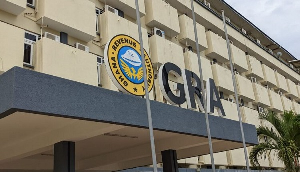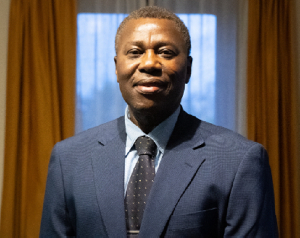Accra, Jan. 12, GNA - Activities for this year's National Immunisation Days (NIDs) was on Wednesday launched in Accra with a call on all organisations at the regional and district levels to support the programme to achieve its target.
Alhaji Mahama Iddrisu, Acting Minister of Health, who launched the programme, specifically called on the Regional Administrations, District Assemblies and the Unit Committees to support in creating awareness in all communities and organise the required logistics for the effective NID activities.
The target for this year's immunisation exercises which have been scheduled for January 15 and February 19, 2000, is 100 per cent. Children from zero to five years are to be covered under the exercise and will also receive Vitamin Capsules.
The high percentage in NID coverage over the years has helped to reduce the number of polio cases in the country. For example, only three polio cases were reported in Ghana last year as against 23 in 1998. Alhaji Iddrisu said, "to protect our children against such debilitating diseases as polio, it is necessary to promote their state of health and well-being and allow them to develop and to realise their full potentials as citizens of this country".
He said the control of communicable disease among children, is a necessary condition for socio-economic development, but unfortunately diseases such as measles, whooping cough and tetanus are still exacting a heavy toll in Africa, where they account for over 85 per cent of all deaths among children under five.
Alhaji Iddrisu said for some of those who survive after contracting some of these diseases are left suffering from serious sequels, which turn them into socially handicapped persons. It is in recognition of the importance of the Expanded Programme on Immunisations (EPI) that the Ministry of Health (MOH) has systematically integrated immunisation activities into the routine Maternal and Child Health care delivery.
"However, we should not forget that the worst served communities, which account for over 45 per cent of the population are usually those on the periphery and, therefore, difficult to reach with our regular services." The MOH, has a great responsibility of providing services to every citizen in this country but, however, "recognises that it cannot discharge this duty effectively unless communities realise that they have to be involved in contributing to their own general health.
"That is why we appreciate the contributions of those who have made the programme possible." Alhaji Iddrisu mentioned the WHO, UNICEF, USAID and Rotary Club International and its local branches for providing both material and financial support including vaccines and cold chain equipment. He also congratulated the 31st December Women's Movement, the volunteers in the field, the media and the National Planning Committee for their support. GNA
General News of Wednesday, 12 January 2000
Source: GNA












